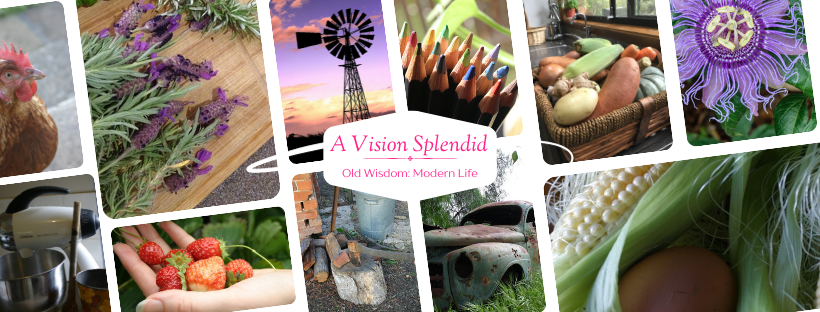Imagine the scene.
I am at my supermarket. I unpack my groceries from the trolley. The young girl scans them and places them lovingly into my 'green bags'. I pay. I smile. I push my trolley out to the car park and load four of the five bags into the boot of my car. I take the fifth bag out of the trolley and walk over to the nearest bin and pour the contents in. Unopened cereal, a carton of milk, half a pumpkin, three oranges and a beautiful bunch of shallots!
....... what a crime ! I hear you say. What a complete and total waste! ..........
The fact is that Australians waste $6 billion each year by throwing away food. A 2007 study found that on average we throw away 4.2 kilograms a week! According to Planet Ark founder and environmentalist John Dee, the reason we throw away so much is because we are forgetful.
In our house in the past we have been extremely guilty of this. Treasures of archaeological significance have been found lurking in that space at the back of the rarely used for anything important middle shelf.
There seems to be some sort of weird mentality when it comes to the fridge. Last week the shallots took up residence in the front row, top shelf, - proudly sitting there ready for that Jamie Oliver cooking adventure. The cooking adventure gets postponed, or worse still we only need three snippets for a garnish and the shallots are put back into the fridge
with the best of intentions I am sure ready for ....... not really sure of that ...... but will think of something good.......
Next week we bring home the avocado, half a rockmelon and the freshly seasoned, organic, free range chicken for the dinner party.After the party we clean up and put all the leftovers into plastic containers, because
we can't let good food go to waste. In three weeks time when we are making way for the giant fruit platter that Aunt Marion has made for the family get together, we HAVE to throw out the left over chicken AND the plastic container because
it has taken on a life of it's own and
after all it's too unhygienic to use that container ever again.
Although we have the best of intentions, the truth is, if we can't SEE IT, we don't remember it.
Saving money on food has been a very important part of this new frugal lifestyle we are adopting. Here are some tips relating to leftovers.
1. MENU PLAN - work out what you are eating and shop accordingly. Plan your menus around your schedule. Easy meals on busy nights and adventurous meals when there is more time. Write your plan on a whiteboard on the fridge as a visual reminder for every one in the house. There is great peace knowing at 7am what you are eating that night and being able to defrost the meat in the fridge through the day.
2. PROGRAMME LEFTOVERS INTO THE MENU PLAN: - Make a meal one night and deliberately make extra for the next night. We often do this when I make lasagne. If there are leftovers after the second night I cut it into single portions and freeze it for lunches.
3. MAKE VISUAL REMINDERS: - I write a list on the whiteboard of things that have to be eaten or used up. If I use some chicken stock, for example, and pour the remainder into ice cube trays to freeze, I put it on my 'must use' list.

4. MAKE SMALLER MEALS: - My Grandmother always said "your eyes are bigger than your belly" meaning, you think you want to eat a certain amount but when it comes to it, you can only eat half of it. We often discuss the old fashioned idea of having much smaller meals and if you're still hungry then have a slice of bread and butter.
5. PRACTICE MINDFULNESS AND USE LESS: I really noticed when I made my cereal yesterday that after eating all the 'bits' I had a lot of milk left over in the bowl. After measuring it I found it to be 1/3 of a cup. Multiply that by seven days and I am pouring out half a litre of milk a week! This morning I overcame my phobia of having cereal pieces that weren't 'wet enough' by stirring thoroughly in less milk before eating. Simple!!
6. COMPOST: When you do have food scraps put them in your compost bin. This will turn back into soil which can then be used to grow vegies or herbs. This is the best form of recycling as studies have shown that about 40% of household rubbish is compostable food scraps. There are now bench top composters available if you live in an apartment.
You wouldn't throw away one in five bags of your groceries each week. You wouldn't cut up a twenty dollar note with a pair of scissors and throw it in the bin, so think about how much food you are wasting and how much rubbish you are producing as a result.
Making these small changes has not only helped our budget, it has also made a huge difference to how much rubbish we put in our bin each week.
If you would like more information on the
Stop Food Waste Campaign you can visit the article from NOTEBOOK magazine
http://www.homehints.com.au/great+recipes/1267/reading/food+waste+in+australia



















